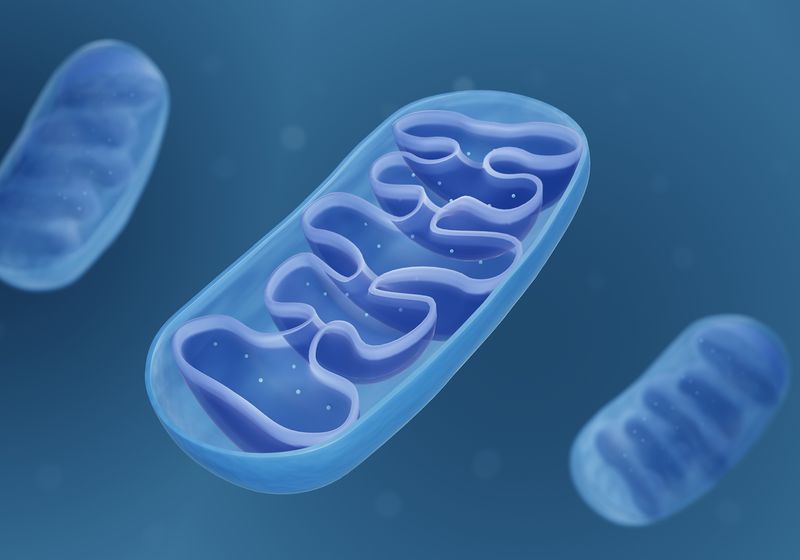Mitochondria as Energy Centers: A Quranic View of Divine Sustenance
In the intricate design of life, mitochondria function as vital powerhouses of cells, converting nutrients into energy to sustain bodily functions. But beyond their biological role, these microscopic organelles offer a compelling metaphor for Divine sustenance as mentioned in the Quran. Through their silent and consistent work, mitochondria reflect the unseen systems by which Allah nourishes and maintains all living beings.
The Marvel of Mitochondria in Cellular Life
Cellular Powerhouses
Mitochondria are known for their ability to produce ATP (adenosine triphosphate), the energy currency of cells. Each cell in the human body may contain hundreds to thousands of mitochondria, each working tirelessly to keep us alive and active.
Autonomy Within Cells
Uniquely, mitochondria have their own DNA, separate from the nucleus, which allows them to function semi-independently. This feature has intrigued scientists, as it suggests a designed balance between autonomy and dependence.
Constant Energy Conversion
These organelles continuously convert glucose and oxygen into energy, powering everything from muscle contractions to brain activity. Their efficiency and constancy are a reflection of Allah’s continuous Rahma (mercy) in sustaining life.
Quranic Insights on Life’s Hidden Processes
Verses on Sustenance
The Quran frequently references sustenance as something only Allah provides:
“There is no creature on earth but that upon Allah is its provision...” (Surah Hud 11:6). Mitochondria serve as a tangible example of how that unseen provision becomes manifest at the cellular level.
Unseen Support Systems
Just as mitochondria operate invisibly within us, Divine help often works behind the scenes. The Quran encourages believers to trust in Allah’s unseen support, reinforcing the idea that much of what sustains us is beyond our awareness.
A Reminder of Tawheed
The consistent functioning of mitochondria, along with every other biological system, points to a singular, wise Creator. Their activity harmonizes with the Quran’s emphasis on the Oneness of Allah and His control over all creation.
Sustenance and Energy: A Shared Quranic and Scientific Language
The Concept of Rizq
Rizq, or provision, in Islamic theology includes all that sustains life — physical, emotional, spiritual. Mitochondria, while biological, are a key part of our physical rizq.
Scientific Precision, Divine Order
The exactness with which mitochondria operate reflects a deliberate, Divine order. Each enzyme, molecule, and reaction appears to be perfectly designed, aligning with the Quran’s description of creation:
“He created everything and determined it with precise determination.” (Surah Al-Furqan 25:2)
Interdependence of Creation
Cells rely on mitochondria; humans rely on cells; life depends on energy. The interwoven nature of creation mirrors the Quranic message that all things are connected through Divine wisdom and purpose.
The Spiritual Symbolism of Cellular Energy
Inner Light and Nūr
Just as mitochondria produce energy that powers light-sensitive organs like the eyes, the Quran speaks of Nūr (light) as both literal and spiritual. This spiritual light guides believers, just as cellular energy enables vision.
Trust in Divine Provision
Understanding how mitochondria sustain life even while we sleep should remind us of Allah’s continuous provision, whether we’re aware of it or not. This ties back to the verse:
“Indeed, it is Allah who is the continual Provider...” (Surah Adh-Dhariyat 51:58)
From the Micro to the Macro
The miracle of mitochondrial function illustrates how Divine care extends from the smallest units of life to the grandest scales of the cosmos. This micro-macro reflection deepens our awe of Allah’s creation.
Quranic Parallels in Modern Biology
- The Quran emphasizes the unseen — mitochondria are invisible to the naked eye, yet essential.
- Divine provision is constant — mitochondrial function never stops, even in rest.
- Human limitations are acknowledged — we live unaware of the cellular miracles within us.
- The Quran urges contemplation — mitochondria invite us to reflect on internal signs of Divine wisdom.
Mitochondria and the Balance of Creation
- Mitochondria help maintain the balance of pH and metabolic waste in cells.
- This mirrors the Quran’s message about balance in the universe:
- “And He established the balance. So do not transgress the balance.” (Surah Ar-Rahman 55:7-8)
- Imbalance in mitochondrial function leads to disease — a reminder of human frailty.
- Maintaining health requires honoring the balance Allah placed within our bodies.
A Sign for Those Who Reflect
- Allah repeatedly tells us:
- “Indeed, in that are signs for a people who give thought.” (Surah Ar-Rum 30:21)
- Mitochondria are a profound sign — unseen, consistent, life-sustaining.
- Their design invites us to believe not in chance but in Divine will.
- Reflecting on their function can lead to greater spiritual awareness and gratitude.
How Mitochondria Reinforce the Need for Faith
- They affirm the presence of unseen systems that we depend on daily.
- They show how life is supported by countless processes we do not control.
- Their complexity points to intelligent design, not randomness.
- Belief in Allah becomes not just theological but scientifically sensible.
Conclusion
The silent work of mitochondria offers both a scientific marvel and a spiritual lesson. As unseen energy centers, they demonstrate the delicate and detailed provision Allah grants to every creature. Their continuous function is a living sign of Divine mercy and wisdom, reinforcing the Quranic concept of Rizq in the most intimate corners of our existence. At Muhammadan Quran School, we explore such intersections between science and the Quran, helping students reflect deeper while learning the Quran. Our online Quran classes for kids and adults provide a structured yet thoughtful way to connect science, scripture, and daily life.





Comments